Spotlight: Ellie Moon
The qualities that make a play “timely” rather than “timeless” are often tied directly to a specific cultural moment, driven by news headlines, small talk, and—in this age at least—hashtags. Works written long ago that resonate in modern times are lauded for their prescience, their ability to encapsulate a piece of the human spirit that may have morphed but not fundamentally changed in the intervening years. It’s a sobering reminder that oftentimes current problems are really just old problems with new dressing. New plays in conversation with the here and now are similarly praised, but often for their bravery: their courage to say hard things we need to hear, to expose another perspective, to rock the worldviews that have hardened over our sustained existence in the world.
But of course, a playwright can do both. Just take Ellie Moon for example.

The 26-year-old actor and playwright had an explosive debut to the Toronto theatre scene nearly three years ago, an almost-too serendipitous concoction of time, message and form. Asking For It, Moon’s debut script and also her first performance in the city, was a verbatim exploration of sexuality and consent expressed through a young woman’s point of view, grappling with the complexity of being a sexual being in this specific world. In October 2017, just before the run began previews with Crow’s Theatre, Nightwood Theatre, and Necessary Angel, the New York Times published allegations of sexual harassment and assault against Harvey Weinstein.
A few days after Asking For It officially opened, the #MeToo movement took off.
“When I was seeing all these comments, I thought it was just my algorithms acting up. And I was so in my own zone that the magnitude of #MeToo did not hit me until after we closed,” Moon says. She explains that the shared experiences that fueled #MeToo were still secret during the nerve-wracking creative process behind Asking For It, which had already built a buzz around its content before it even began previews. “I had to do the entire rehearsal process, preview process, in a pre-#MeToo world.”
That’s an intimidating start for an artist in her early 20’s, making both her acting and playwright debut in Toronto after growing up in the small town of Kingsville, Ontario (Canada’s Southernmost town!) and pursuing an acting degree in London, England. But about two and a half years later, Moon has debuted another play (What I Call Her in 2018), written a feature film (Adult Adoption, shooting later this year), remounted Asking For It at the 1000 Islands Playhouse this past summer, and continued to work as an actor. Now she’s getting her third professional play debut at Tarragon Theatre, This Was the World, directed by Richard Rose and running now until March 1.

“I pitched it to Tarragon as a play about white fragility. I started with the question of how much a culture that distances itself from injustice contributes to a public consciousness that denies injustice,” she says. “I was interested in writing about shifts in culture within academia, and specifically attempts to decolonize a law school in Canada. In the world of this play, there’s a lot of western gatekeeping, fear of change, attempts to control the discussion. I was interested in the moment when everything I just named turns violent.”
Taking place in a Canadian law school, This Was the World stars R.H. Thompson as a professor of Indigenous law under the Canadian constitution who clashes with his administration over the hire of a colleague who specializes in Indigenous self-governance—another timely stroke for Moon, as the conflict in B.C. between Wet’suwet’en First Nation land defenders and the RCMP continues.
“Law school is a good metaphor for our industry, and a lot of industries, because it’s a structure that has been based around keeping people out. So what does bringing people in and seeing them, what does that mean?” she says.
Moon’s interest in Canadian law grew out of writing Asking For It. As she researched the details of the legal system in sexual assault cases, she discovered an appreciation for the art behind law, the interpretation of definitions rather than their strict enforcement. In the development of This Was the World, she worked with legal experts and consultants like Kawennáhere Devery Jacobs, Wally Wapachee, and Yolanda Bonnell, acknowledging full well that she was writing outside of her own experience but out of a responsibility she felt as a white writer with the platform of being a writer in residence at the Tarragon Theatre.
“White people benefit from racial oppression, so I think it needs to be interrogated by white people,” she said. “Just like everyone who went through the public-school system in Canada, I was taught none of this. And it’s so shocking. So, I’m just grateful that I got to take the time.”

This Was the World might feel like a departure from her debut Asking For It, the former tackling a topic outside of her lived experience while the latter featured Moon’s curated interviews and cast her as herself. But Moon says that she has experienced the incorrect assumption that all of her plays are autobiographical.
“I’ve lived a relatively boring life and I’m relatively young. If I stuck with my limited experiences with my writing, it wouldn’t be as interesting,” she says. “If I write a character from a small town who now lives in a city, those might be the only things that I share with that character. But I absolutely notice that people tend to pick up on those details and then see the character based as me… There are truths that pop up in my work when I write but they’re really not as fundamental as people seem to imagine. And they’re not so much experiences but actually just thoughts and questions that are true for me or close to me. And it’s never, ever, ever, ever as straightforward as a character being a proxy for me.”
“It is very censoring if you feel like what you put out there is going to be directly attributed to you. Like you can’t write a murderer, someone will think you murdered someone.”

Brendan Healy, artistic director of Canadian Stage and director of Asking For It, witnessed up close Moon’s ability to juggle her own personal connection to the carefully created story she was both writing and performing.
“It was interesting because she was the playwright, the actor, but also playing herself, so it was a complicated network of intersections there. I felt she really was able to handle when it was time to be an actor versus when it was time to be a writer, and also how to be artistic with her own persona. That’s a pretty sophisticated thing to achieve,” he says. “Psychologically you have to be able to see yourself. You have to step outside of your own person to have a bit of objectivity on how other people may see you and be able to play with that.”
But both Moon and Healy say they’ve noticed that these kinds of assumptions often happen when the playwright bears certain identities.
“Often I’ve noticed that female artists are assumed to be writing from a place of confessional and I can see that with queer artists as well. And so the danger there is people are not perceiving the level of fiction and artistic manipulation that’s occurring,” Healy says. “There’s absolutely no danger in being confessional or working from your own experience, too. I don’t think that diminishes the work or anything. What it might do is invite a certain type of scrutiny on your personhood, and I think women are already scrutinized in quite an intense way.”

But Moon has found herself within good company; part of the reason she moved back to Canada after living and studying in the U.K. was because she had developed artistic crushes on people like Kristin Thompson, Hannah Moscovitch, and Seana McKenna (who still has a fan letter Moon wrote to her as a child). A more recent artistic connection occurred with director Caitlin Murphy, who cast Moon in the Segal Centre’s production of Lucas Hnath’s A Doll’s House Part 2.
According to Murphy, Moon entered her audition “Like a grenade that had been launched into a room yet somehow had enough awareness of itself to wonder what direction it should explode in and how.”
“The way she responded to direction with such engagement and abandon was so refreshing, a bit of a revelation for me. It felt like she was offering something between an agreement and an invitation, ‘This can be whatever we want, right?’” Murphy says, evidently a witness to the inquisitiveness that drives Moon as both an actor and a playwright.
“I’ve heard it said that older theatre artists should really think about having younger mentors. And I feel confident that I have that in her. When she says nice things about me, I feel stupidly flattered. I think we make each other blush and giggle. And I don’t know what’s better than that,” Murphy says.

Both Healy and Murphy say they have a vested interest in what Moon takes on next, as either an actor or a writer.
“I can say there are few topics that I wouldn’t want to hear Ellie’s take on. I am just really interested in her point of view; it’s interesting, it’s truthful, it’s complex. I certainly learned a lot working on Asking for It, and that’s the greatest gift as a director—to leave a process feeling expanded. I left that process with so much more empathy and an ability to kind of contain a wider variety of experiences, which is great and that’s what theatre is all about,” Healy says.
“What I see in her writing is a tremendous amount of character detail and an ability to create characters that contain contradictions, who are very much sitting inside the oppositions that exist within them. That to me is a real sign of a great writer, like a Chekhov.”
Moon’s plays are not only distinctive for tackling topical subjects, but in their refusal to reduce those subjects into extremes or opposites. When speaking about This Was the World, she expresses empathy for those confused by the challenge to their worldview and the structures they’ve built within that worldview. And that’s because Moon doesn’t just identify with one particular side or character, but with the predicament that we’re all collectively sharing.
“If I have a goal in my work, it’s probably just to bring consciousness to subjects we get defensive around,” she says. “Everything is here to stay, including what we’d like to disavow in ourselves and our societies. And maybe you can’t shed something completely, but you can bring consciousness to it; I think that’s when transformation happens, and that’s what transformation actually is.”

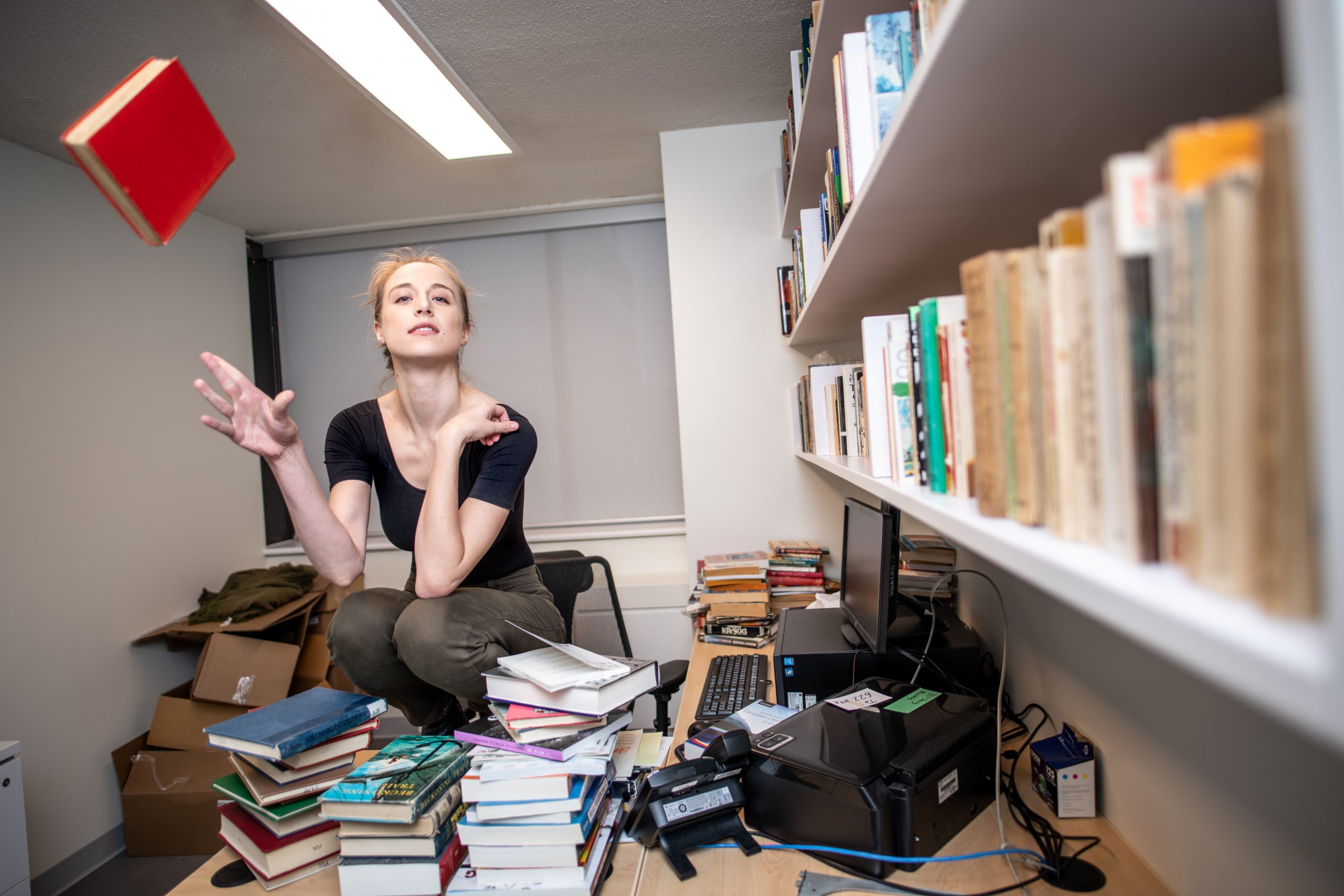
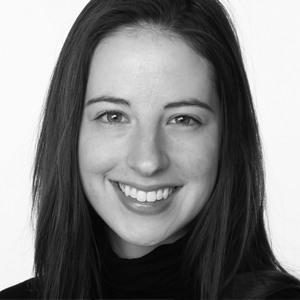
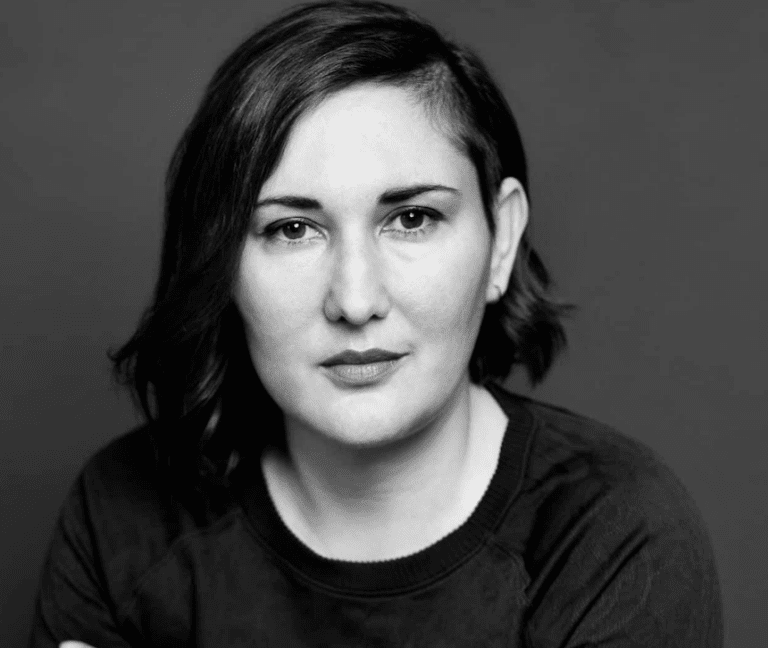


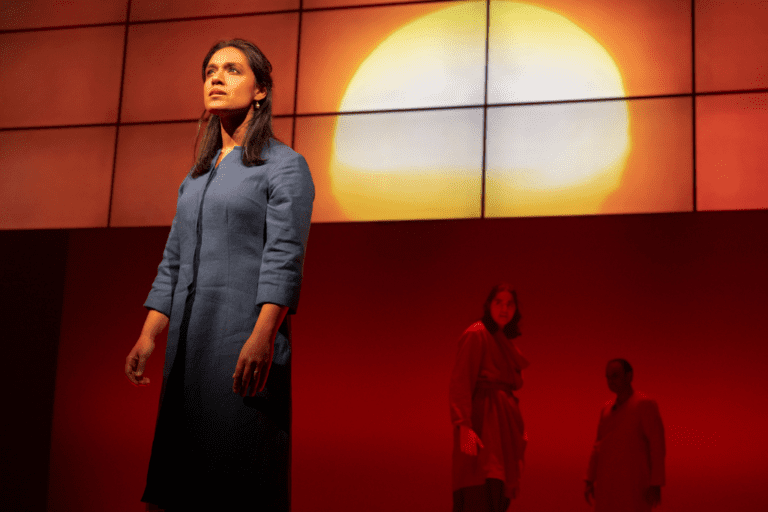
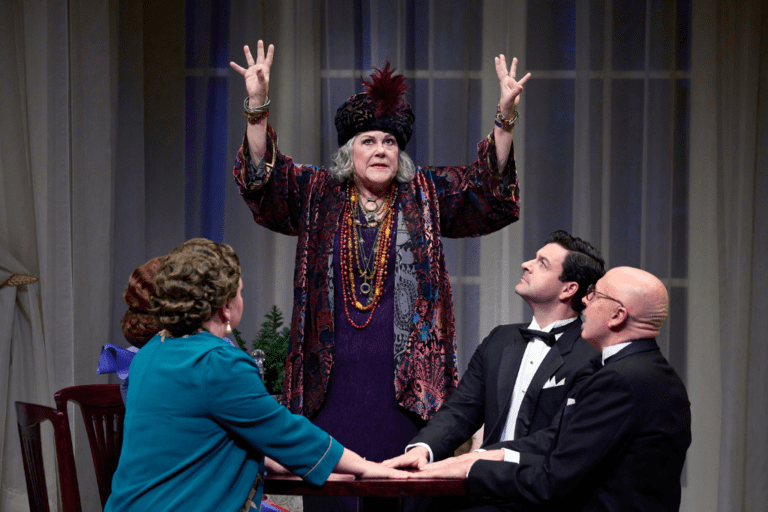


Comments